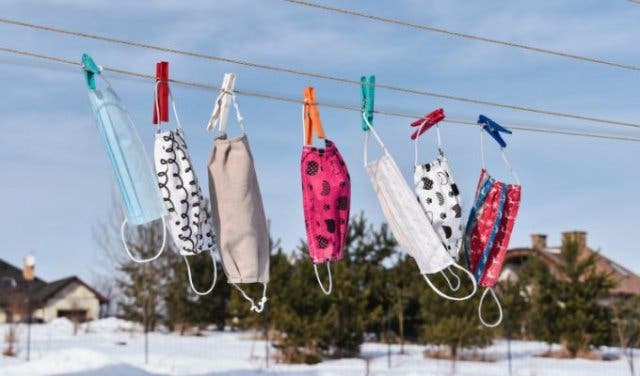![]() EARTHBOX is a first-of-its-kind ...
EARTHBOX is a first-of-its-kind ...
Experience an immersive sensory journey into the depths of the earth
| For Moments of Joy. Follow our social channels for useful news, daily local champions | |
 | 072 350 2062 |
 | Ideas Cartel, The Old Foundry, 1 Sand Hill Road, Green Point |
 | www.capetownmagazine.com/subscribe |
 | now@capetownmagazine.com |
 | CapeTownMag |
 | CapeTownMagazine.com |
 | capetownmag |
No more masks, border checks gone, no limit to gatherings + keep up to date on stats
COVID-19 UPDATE: Thursday, 23 June 2022
It has been over 800 days since South Africans started making their own masks, stashing disposables in their cars and bags, dealing with fogged-up glasses and figuring out whether the around-the-head or around-the-ear masks are more comfortable.
Today we say MASKS OFF. Health Minister Joe Phaahla has repealed the wearing of masks and the limitations on gatherings and Covid tests for incoming travellers.
We may once again appreciate the smiles of strangers, and we will never take it for granted. Here’s everything you need to know about the new-new normal.

As of Wednesday, 22 June, South Africans no longer need to wear masks indoors. Phaahla repealed three regulations by notice in the Government Gazette, ahead of a planned press conference on Thursday, 23 June. Limits on gatherings and border checks (including vaccination status) have also been dropped.
According to the Regulations Relating to the Surveillance and the Control of Notifiable Medical Conditions, 16A refers to "wearing of face masks to contain the spread of COVID-19". Up until Wednesday, people were required to wear a face mask in any public indoor space or on public transport. This is no longer required.
Regulation 16B refers to the "regulation of gatherings to contain the spread of COVID-19". Limits were put on gatherings (no more than 100 people and up to 50% of a venue's maximum capacity if everyone was vaccinated). If vaccination statuses were unknown, a maximum of 1,000 people indoors and 2,000 outdoors was permitted.
Lastly, Regulation 16C referred to the "regulation of persons entering the country to contain the spread of COVID-19", which required a negative PCR test or proof of recovery from Covid-19.
These regulations have now been scrapped entirely.
Follow the Western Cape government’s dashboard for the latest Covid-19 statistics.
To find out where to get vaccinated, follow this link.
Make an informed choice about getting the Covid-19 vaccine by watching Science Insider’s Debunked series, where scientists Dr Nipunie Rajapakse and Dr Maria Elena Bottazzi debunk 13 myths about the Covid-19 vaccine. Some of these include the dependence of herd immunity to avoid vaccination, receiving vaccines that carry diseases and more.
Covid-19 booster shots have arrived in South Africa, which is facing the fourth wave, driven by the new varian omicron. Booster vaccines will be offered to healthcare workers first, as they received their first and only Johnson & Johnson vaccine over 8 months ago. Watch as Bhekisisa Health explains what booster shots are all about and why they may be necessary.
---
Make the most of your holiday season with our rejuvenated list of things to do.
Here’s what you need to know about SA’s newest airline, Lift.
Upskill your life with free and discounted short-courses
---
Follow and like us on Twitter ❤ Facebook ❤ LinkedIn ❤ Instagram ❤ Pinterest for updates.
![]() EARTHBOX is a first-of-its-kind ...
EARTHBOX is a first-of-its-kind ...
Experience an immersive sensory journey into the depths of the earth
![]() Once-in-a-lifetime exhibition of Esther ...
Once-in-a-lifetime exhibition of Esther ...
On from February to August 2024; 100+ artworks
![]() Cape Town’s very own cannabis club, ...
Cape Town’s very own cannabis club, ...
Now with over 90 strains of weed and The Serenity Room
![]() Best day ever? Monster Mountain ...
Best day ever? Monster Mountain ...
Scootours Banhoek has scooters, vine bikes and archery
![]() Possibly the best escape room in the ...
Possibly the best escape room in the ...
HintHunt’s Marble is being called “the king of escape rooms”
![]() Netflix and chill & office lunch are ...
Netflix and chill & office lunch are ...
From mushroom burgers and loaded fries to “sticky wings”
![]() How to have an unforgettable 40th, 50th ...
How to have an unforgettable 40th, 50th ...
Private chef and 3-course meals at a 5-suite manor
![]() We just found our next place for a ...
We just found our next place for a ...
Cederkloof: Cottages with jacuzzi + house with pizza oven